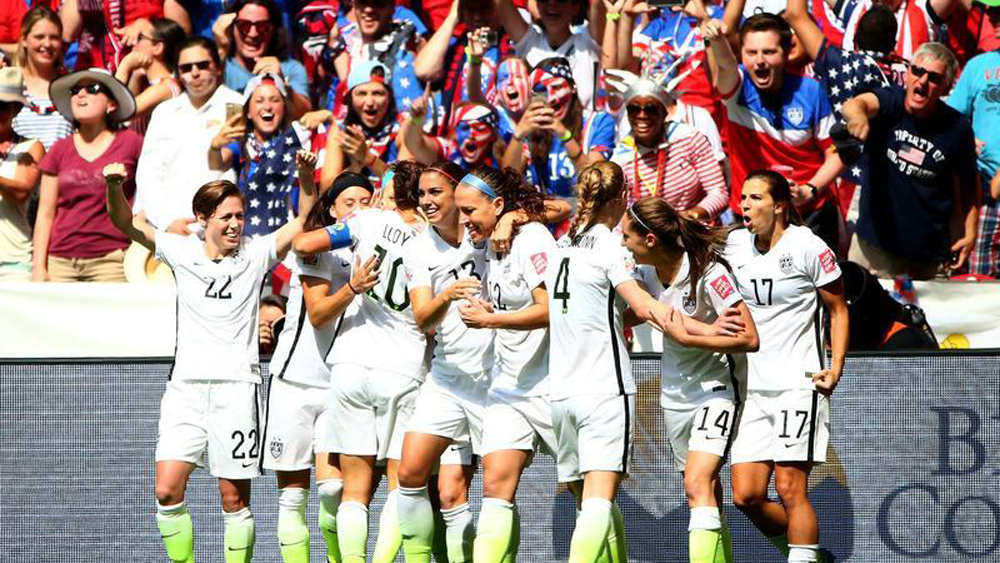The Sport of Sexism and the Importance of Changing the Game
Sexism is prevalent in many arenas, and the world of sport is no exception. There seems to be a constant stream of complaints from sportswomen suffering from inappropriate comments, discrimination, insulting generalizations and inequality.
From a financial point of view, a startling pay gap still exists. It’s something we’re all aware of. It’s customary in many industries and women suffer from it on a daily basis. It’s even been used as a marketing ploy – did you hear about the New York bar that charged women 77c for every dollar they charged a man?
Fair play?
In some cases, there is an argument for women earning less. In tennis, for example, women play a maximum of three sets compared to five for men. Often, however, the disparity is beyond reason. Let’s consider the case of football. The winners of the 2015 FIFA Women’s World Cup, U.S.A., were awarded just $2 million. This is a pittance compared to the $35m earned by the winners of the men’s tournament, Germany, in 2014, and a quarter of what the 16 men’s teams who were eliminated in the first round in Brazil were awarded.

You could say there isn’t as much interest in women’s sport as there is in men’s. You could say that men’s sport generates more revenue through advertising, sponsorship, and so on. But there’s no denying that there’s an underlying problem of sexism here. And it’s not being tackled. The World Cup winning women’s U.S. football team drew the largest U.S. television audience for a football match ever – men’s or women’s. That’s a fact that can’t simply be ignored.
Sexism: the ugly side of the game
Sepp Blatter, infamous for the corruption allegations that blighted his term as the eighth president of FIFA, never seemed to attach much importance to encouraging equality. This is an issue that any high-profile member of the football community should deem vitally important. Although, to give him his due, he did offer one suggestion for increasing interest in women’s football. “They could, for example, have tighter shorts.” This is a man who was the president of the world’s leading football body. If he doesn’t take women’s sport seriously, who will?
Countless other examples of sexism paint a similarly worrying picture. Chelsea’s ex-first-team doctor, Eva Carneiro, highlighted an enormous problem when, following her complaints of sexist abuse and discrimination at the football club, she revealed that at no point did the FA ask to hear her side of the story. She said, “It is incidents such as these, and the lack of support from the football authorities, that make it so difficult for women in the game.”
Women all over the world, in all walks of life, are insulted when outdated gender roles are perpetuated. This is something that Salvo Sports obviously didn’t think was a big deal. A sports kit they released in 2015 featured the following washing instructions: “Give this jersey to your woman. IT’S HER JOB.” The clear idea portrayed here is that while men go out and play football, women should be at home washing the kit.
The lackluster apology, in which women are cited as “more capable” in their laundry-washing abilities, is equally insulting – this time to both men and women alike. Was no man even slightly offended by the implication that a woman, purely by virtue of her gender, is supposedly better at washing clothing than he is? And where does this assumption come from? Is there a talent for washing hidden in the extra X chromosome and missing from the Y?
Salvo Sports need to be made aware that post-furor apologies just aren’t enough. They may not have intended to humiliate women. They may well issue an apology, but how about thinking these things through first? What happened to ‘think before you speak’? Any apology that rolls out the pathetic old “we apologize profusely for any misinterpretations” is misguided. It also serves to absolve the guilty party of any real culpability, casting the blame instead on the people who (in this case quite rightly) took offense.
Examples of sexism such as these simply lead back to the notion that women aren’t welcome on the pitch. Or, as the Eva Carneiro case suggests, even the sidelines.
A level playing field
Gender equality in sport needs to become the norm. Football players shouldn’t be surprised to have a female coach, a sportswoman’s attire shouldn’t be a point for discussion, and the hard work and accomplishments of talented female athletes should not be undermined by belittling interview questions. Justin Trudeau summed it up perfectly when asked why having a gender-equal cabinet was important to him. “Because it’s 2015.” Maybe we could all take a (maple) leaf out of his book.









